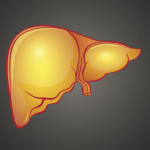Weight gain is a growing problem for the American population as a whole, and this is equally true for people living with HIV. Some studies have found that more than half of HIV-positive people struggle with overweight or obesity, and the likelihood increases as people age.
In general, weight gain occurs when people consume more calories than they burn. But this is not the whole story. Metabolism is complex, and many factors can contribute to weight gain and fat buildup, including hormone levels, immune activation, the gut microbiome and disruption of the processes of storing fat and breaking it down for energy. All of this varies from person to person, and some people are more prone to weight gain—and have more trouble losing weight—than others.
HIV further complicates the picture. People with advanced HIV may gain weight as they return to health after starting antiretroviral treatment. But unwanted weight gain can also occur among people who start treatment early. Chronic HIV—even when well controlled with meds—can trigger persistent immune activation and inflammation that throws off metabolism and leads to fat buildup.
In recent years, there’s been growing recognition that some people gain weight after they start or switch antiretroviral therapy. Several studies have shown that people taking potent integrase inhibitors, such as dolutegravir, are more likely to gain weight. The newer form of tenofovir (tenofovir alafenamide) is more likely to be associated with weight gain, while the older version (tenofovir disoproxil fumarate) lowers the risk.
People with HIV can experience different kinds of weight gain and fat buildup. Visceral abdominal fat accumulates deep within the belly surrounding the internal organs. The buildup of internal fat pushes up against the abdominal wall, resulting in a hard belly. Subcutaneous fat—which is soft and pinchable—accumulates beneath the skin, often around the belly, hips and thighs.
Excess weight, especially visceral fat, is linked to a host of health problems. Fat, or adipose tissue, is metabolically active and produces hormones and cytokines that regulate energy expenditure and can trigger inflammation. Weight gain often goes hand in hand with metabolic abnormalities, including high blood sugar, abnormal cholesterol and triglycerides levels and high blood pressure (collectively known as metabolic syndrome).
People with overweight or obesity and its associated metabolic abnormalities are at greater risk for diabetes, cardiovascular disease and severe COVID-19. Visceral fat can accumulate around the heart and inside the liver and other organs. Over time, fat buildup in the liver can lead to cirrhosis and liver cancer. Obesity is linked to several other malignancies as well, including breast, colon and kidney cancer. Excess weight can also contribute to cognitive decline, sleep apnea, joint problems and pregnancy complications. What’s more, unwanted weight can have a negative effect on self-esteem and mental health.
How to Manage Weight Gain
Losing weight—and keeping it off—can be difficult for many people. Visceral abdominal fat is particularly hard to shed. But preventing weight gain in the first place is easier than losing weight later.
In many cases, lifestyle changes can help control weight. Most experts recommend a balanced diet rich in plant-based foods and low in unhealthy fats, added sugars, processed foods and alcohol. However, there’s considerable disagreement about which specific foods lead to weight gain and fat buildup; some studies, for example, suggest excess carbohydrates may contribute more than dietary fat. A nutritionist or dietitian can help you cut through the confusion and develop a personalized eating plan that works for you.
There’s more consensus about the importance of physical activity. The Centers for Disease Control and Prevention (CDC) recommends that people should get 150 minutes per week of moderate-intensity activity or 75 minutes of vigorous activity per week, ideally spread out over multiple days. Moderate activity includes brisk walking, dancing or gardening, while vigorous activity includes running, swimming laps or fast bicycling. In addition to these aerobic activities, the CDC also recommends muscle-strengthening activities at least two days a week.
If this amount of exercise is difficult to achieve—for example, due to fatigue, health problems or time constraints—some physical activity is better than none. “Adults should move more and sit less throughout the day,” the CDC advises. “Adults who sit less and do any amount of moderate to vigorous intensity physical activity gain some health benefits.”
Getting enough sleep and reducing stress and anxiety are also important for maintaining a healthy weight. But it can be difficult to lose weight and keep it off with lifestyle changes alone. Some people who eat a healthy diet and get plenty of exercise still struggle with overweight and obesity, while others who eat more and exercise less are able to shed weight more easily. For this reason, many experts recommend that people focus on improving their overall health and fitness rather than trying to reach specific weight loss targets.
In some cases, medications may help, including metformin and the recently approved drug semaglutide. Tesamorelin, a synthetic growth hormone–releasing factor, is specifically approved for reducing visceral abdominal fat in people with HIV. Additional medications can help manage metabolic abnormalities that often accompany overweight and obesity—for example, statins to lower cholesterol and various types of drugs to control blood sugar.
While unwanted weight gain can be distressing, it’s important not to delay or stop HIV treatment due to concern about gaining weight. Staying on treatment and keeping your viral load undetectable is one of the most important things you can do for your overall health. If you are putting on more pounds than you want, talk to your doctor about steps you can take to keep your weight under control and improve your health and fitness.
For a list of topics to bring up to your health care provider, see the article “Ask Your Doctor About Weight Gain.”







Comments
Comments